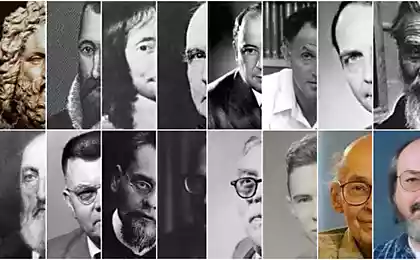462
Scientists stress bothers to vote
A high background level of stress causes you to neglect your civic duty.
The political activity of a person depends on many different factors. And easy solution to go to vote or not to go, will be influenced by age, level of education, where the person studied, income level, family history, and so on and so forth. And socioeconomic factors is not limited to: as found by American researchers from the University of Nebraska-Lincoln, the pursuit of the will affect and psychophysiology.

Although the US is considered the benchmark of a democratic system, Americans vote worse than the Europeans – to the polls there comes fewer people than in the Old world. Jeffrey French (Jeffrey A. French) and his colleagues suggested that a prominent role here can play a stress. Any political action (in household sense) is based on the conflict of interests and the need to resolve the conflict. It is definitely a stressful situation, so we can assume that people with high sensitivity to stress, or experiencing some strong psychological stress, will avoid political activity, albeit in such a simple form as a vote.
To test their hypothesis, the researchers collected saliva samples from a hundred people, among whom were both ardent supporters of both major political parties of the United States and those who are not too interested in politics. In saliva were determined the levels of cortisol, one of the main stress hormones. It was determined several times before and after the special tasks that had participants either stressful or calm. Multiple measurement is needed to change hormone levels to determine whether the person is generally tense.
It turned out that high initial levels of cortisol typical of those who are not particularly goes to the polls, even if is a strong supporter of a particular party. Moreover, participation in other forms of political activity (e.g., help in the election campaign, funding of political movements, etc.) for the hormone to predict it was impossible. The desire to participate in any socio-religious activities jumps cortisol had no effect. Among other factors influencing electoral activity, the authors isolated age: older people vote more than young. The study is published in the journal Physiology and Behavior, and briefly about them writes EurekAlert!..
Cortisol levels as a marker of stress has long been used in psychological and psycho-physiological observations. It is known that high levels inhibits social activity, people trying to get away from contact with others it increases anxiety in the long term it can lead to clinical depression. The relationship of cortisol with the political activity was evaluated for the first time, and, in General, we can say that a high background level of stress inhibits the pursuit of the will (but does not affect other forms of political activity). Is there any secret to why in a depressed socio-economic conditions of the people are indifferent to elections?
Source: nkj.ru
The political activity of a person depends on many different factors. And easy solution to go to vote or not to go, will be influenced by age, level of education, where the person studied, income level, family history, and so on and so forth. And socioeconomic factors is not limited to: as found by American researchers from the University of Nebraska-Lincoln, the pursuit of the will affect and psychophysiology.

Although the US is considered the benchmark of a democratic system, Americans vote worse than the Europeans – to the polls there comes fewer people than in the Old world. Jeffrey French (Jeffrey A. French) and his colleagues suggested that a prominent role here can play a stress. Any political action (in household sense) is based on the conflict of interests and the need to resolve the conflict. It is definitely a stressful situation, so we can assume that people with high sensitivity to stress, or experiencing some strong psychological stress, will avoid political activity, albeit in such a simple form as a vote.
To test their hypothesis, the researchers collected saliva samples from a hundred people, among whom were both ardent supporters of both major political parties of the United States and those who are not too interested in politics. In saliva were determined the levels of cortisol, one of the main stress hormones. It was determined several times before and after the special tasks that had participants either stressful or calm. Multiple measurement is needed to change hormone levels to determine whether the person is generally tense.
It turned out that high initial levels of cortisol typical of those who are not particularly goes to the polls, even if is a strong supporter of a particular party. Moreover, participation in other forms of political activity (e.g., help in the election campaign, funding of political movements, etc.) for the hormone to predict it was impossible. The desire to participate in any socio-religious activities jumps cortisol had no effect. Among other factors influencing electoral activity, the authors isolated age: older people vote more than young. The study is published in the journal Physiology and Behavior, and briefly about them writes EurekAlert!..
Cortisol levels as a marker of stress has long been used in psychological and psycho-physiological observations. It is known that high levels inhibits social activity, people trying to get away from contact with others it increases anxiety in the long term it can lead to clinical depression. The relationship of cortisol with the political activity was evaluated for the first time, and, in General, we can say that a high background level of stress inhibits the pursuit of the will (but does not affect other forms of political activity). Is there any secret to why in a depressed socio-economic conditions of the people are indifferent to elections?
Source: nkj.ru























